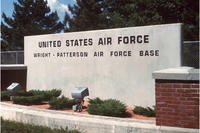At least some veterans groups are encouraged by the Defense Department's version of a 401(k)-like plan and other proposed changes to the military retirement system.
The Pentagon on Wednesday released details of the proposal, which mirrors one of the most controversial recommendations earlier this year from the independent Military Compensation and Retirement Modernization Commission.
The department's plan, however, would provide a matching government contribution to troops who serve 20 years or more and change the disability retirement calculation, according to the Military Officers Association of America, the nation's largest officers association.
"MOAA has reviewed the Pentagon's retirement recommendation and is encouraged that the Pentagon corrected some of the commission's shortfalls," Norb Ryan, the association's chief executive officer and a retired Navy vice admiral, said in a statement.
'BLENDED' RETIREMENT PLAN
Like the commission's proposal, the Pentagon's new "blended" retirement system would offer a 401(k)-like defined-contribution plan to the vast majority of troops who leave before the 20-year mark and don't receive any retirement pay. About eight in 10 service members leave before the 20-year mark.
It would do so by reducing the existing defined-benefit plan. Under the current system, most officers and enlisted personnel who serve 20 years receive annual retirement pay equal to half of their average basic pay over their last three years of service. The Pentagon's proposed plan -- like legislation proposed in Congress -- would reduce that figure from 50 percent to 40 percent.
Future troops who serve two decades or longer would receive both benefits under the new system, which would take effect in 2018 if approved by Congress and the White House. Those with shorter service commitments would receive only the new Thrift Savings Plan, which they could take with them after they leave the military and roll over into a public- or private-sector benefit.
The Defense Department said service members enrolled in the revised TSP would initially receive matching contributions of 1 percent of his or her basic pay. They would be fully vested after two years of service and eligible for additional matching contributions of up to 5 percent after four years of service.
LINGERING CONCERNS
No current retirees would be affected by the new plan; they would be grandfathered into the existing system. Similarly, currently serving troops would be allowed to opt into the news system or stay with the existing system. But all future serving troops, meaning those who enter on or after Jan. 1, 2018, would be automatically enrolled into the new benefit, according to the Pentagon.
MOAA's Ryan said his organization remains worried that the total value of the proposed military retirement benefit would rise and fall based on the performance of the stock market.
"Let's be clear, the current system provides great predictability and the TSP's rate of return is at the whim of market fluctuation," he said. "We still have concerns that the 20-percent reduction in a service member's retired pay will fail to draw members to 20 years of service and beyond."
To help retain troops and shape the force, the Pentagon said service members in the new retirement system would also be eligible for a bonus, or continuation pay, after eight to 16 years of service, depending on their branch of service, which would have the flexibility to set the rate.
Like the commission's version, the Pentagon's plan assumes doing away with a military retirement cut that lawmakers approved in 2013. Retirees between the ages of 40 and 62 are slated to receive an annual cost-of-living increase to their retirement benefits at 1 percent less than the rise in inflation. The reduction was to take full effect in 2016.
'VERY GOOD DEAL'
"Is there a risk? Yes, there's always a matter of risk with 401(K)-type of accounts," Joe Davis, a national spokesman for the Veterans of Foreign Wars, said in an interview. "But in the long run, history has proven that the economy always rebounds."
While he said the proposed retirement benefit is "a very, very good deal for the new folks," Davis also acknowledged that currently serving troops with more than a decade of service probably won't "opt into the new program."
Both chambers of the Republican-controlled Congress have introduced legislation to overhaul the military retirement benefit. The bills were based largely on the commission's recommendation, but may be revised in coming weeks and months to more closely match the Pentagon's proposal. Meanwhile, President Obama said he wants more time to review the issue.
"If the House and Senate can get strong backing and tweak it to the point of mutual agreement, I don't any White House opposition," Davis said.
He added, "The retirement issue is about retention, it's not about retirees. It's about how do we keep the best and brightest in uniform throughout their career. What hurts recruiting and retention is a good economy because people have options -- and the economy is coming back."
-- Brendan McGarry can be reached at brendan.mcgarry@military.com.





























